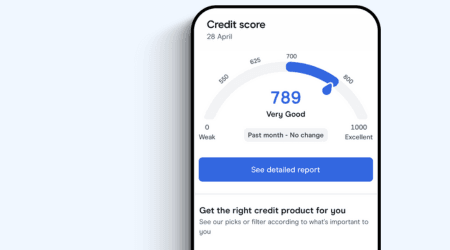Cost of living crisis forces more Australian parents to seek loan help

Rising back to school costs have led more families to apply for No Interest Loans from community organisations.
As the cost of living crisis continues, back to school costs have become a major headache for many low income families.
New data from NAB shows the number of Australians using No Interest Loans to cover back to school costs has jumped 73% since 2018.
According to Good Shepherd, which provides No Interest Loans in partnership with NAB, almost 14% of these loans are used to cover education costs.
Recent Finder research shows 1 in 3 Australians say they're struggling to afford back to school expenses this year.
11% of Aussies said they would have to go into debt to cover school expenses like laptops and uniforms.
No Interest Loans are offered by community organisations in partnership with some banks. They're available to low income applicants and can be used to cover essential purchases like:
- Household appliances
- Car repairs
- School uniforms
- A phone or laptop
There are no fees or interest charges with these loans. But applicants need to show an ability to repay the loan.
The rising cost of living has affected every Australian in one way or another. Groceries, fuel, utilities, rent and mortgage repayments have all risen fast since 2022.
When you add in Christmas expenses, by the time we get to January, it's clear that the cost of sending kids back to school is too much for some people to bear. Even if there are signs that inflation is finally slowing.
No Interest Loans are an emergency option for individuals earning less than $70,000 a year ($100,000 for couples) or people fleeing domestic violence.
While they don't suit everyone, they don't have fees and interest charges and are used to cover specific items.
This makes them less risky or expensive than other types of emergency, short-term finance like payday loans or pay on demand apps.
Payday loans don't charge interest but have exorbitant fees. Borrowers risk getting trapped in punishing debt cycles over what is initially a relatively small sum of money.
Pay on demand apps let workers access some of their next pay check in advance, in exchange for a flat fee. As a one-off, this may not be particularly expensive, but your next pay check will be come minus the fee and the money you've already accessed.
If you find yourself regularly turning to payday loans or pay on demand services, you may need financial counselling.
You can access free financial counselling via the National Debt Helpline on 1800 007 007.
Struggling to cut costs? Some of our expert money saving tips might help.
- NAB press release
- Back to school costs, Finder, accessed 18 January 2023





